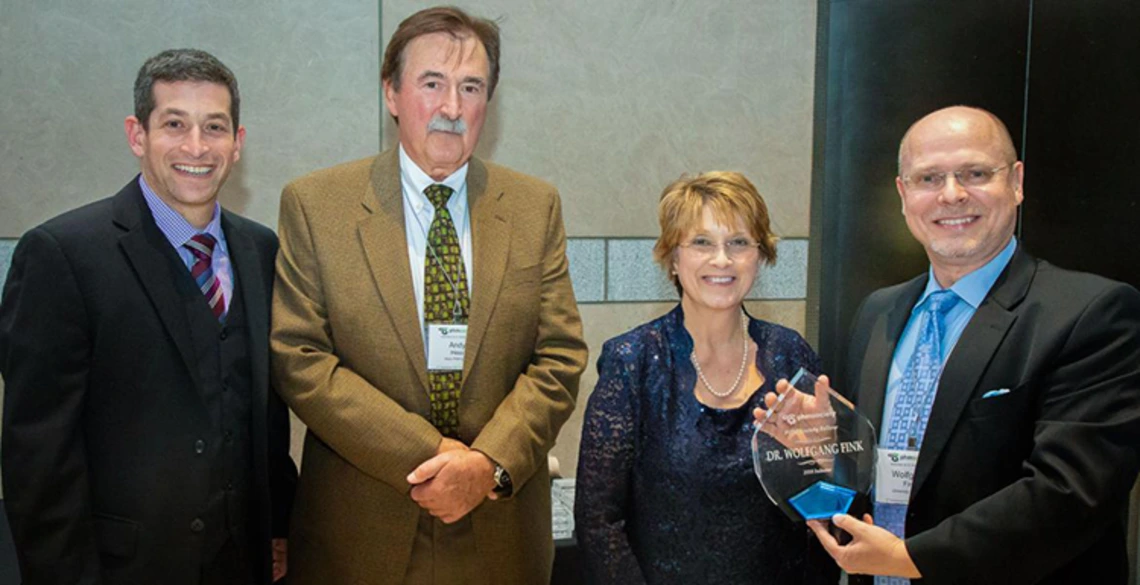UA Researcher Explores Key to Healthy Humans, Safe Spacecraft and Prospering Plants

Wolfgang Fink, associate professor of electrical and computer engineering with a joint appointment in biomedical engineering, has always had a knack for seeing how the pieces of a puzzle fit together. Today, that means that Fink -- who also has joint appointments in aerospace and mechanical engineering, ophthalmology and vision science, and systems and industrial engineering -- can continue finding connections across disciplines to solve a world of problems.
His current work is focused on predictive health management, a field with an origin in aerospace engineering but with wide-ranging applications, such as human health. Fink’s research is starting in space, where it’s both crucial and complicated, because specially trained astronauts -- who are difficult to replace -- need to stay healthy and don’t have access to a doctor.
If engineers can perfect these predictive methods in space, then using them to monitor human health on Earth should be easy.
“We are, in a way, very complex machines -- more complex than machines,” said Fink, who leads the Center for Informatics and Telehealth in Medicine, or InTelMed, a partnership between the UA, industry and professional bodies such as the PHM Society. “What we’re trying to do is gather data on patients and use it to make a prognosis as to where a patient is headed. Is a patient on the verge of developing prediabetes? Or having some sort of heart rhythm distortion that may point to heart problems or a stroke in the future? Can we suggest countermeasures early on to prevent these things from actually happening?”
